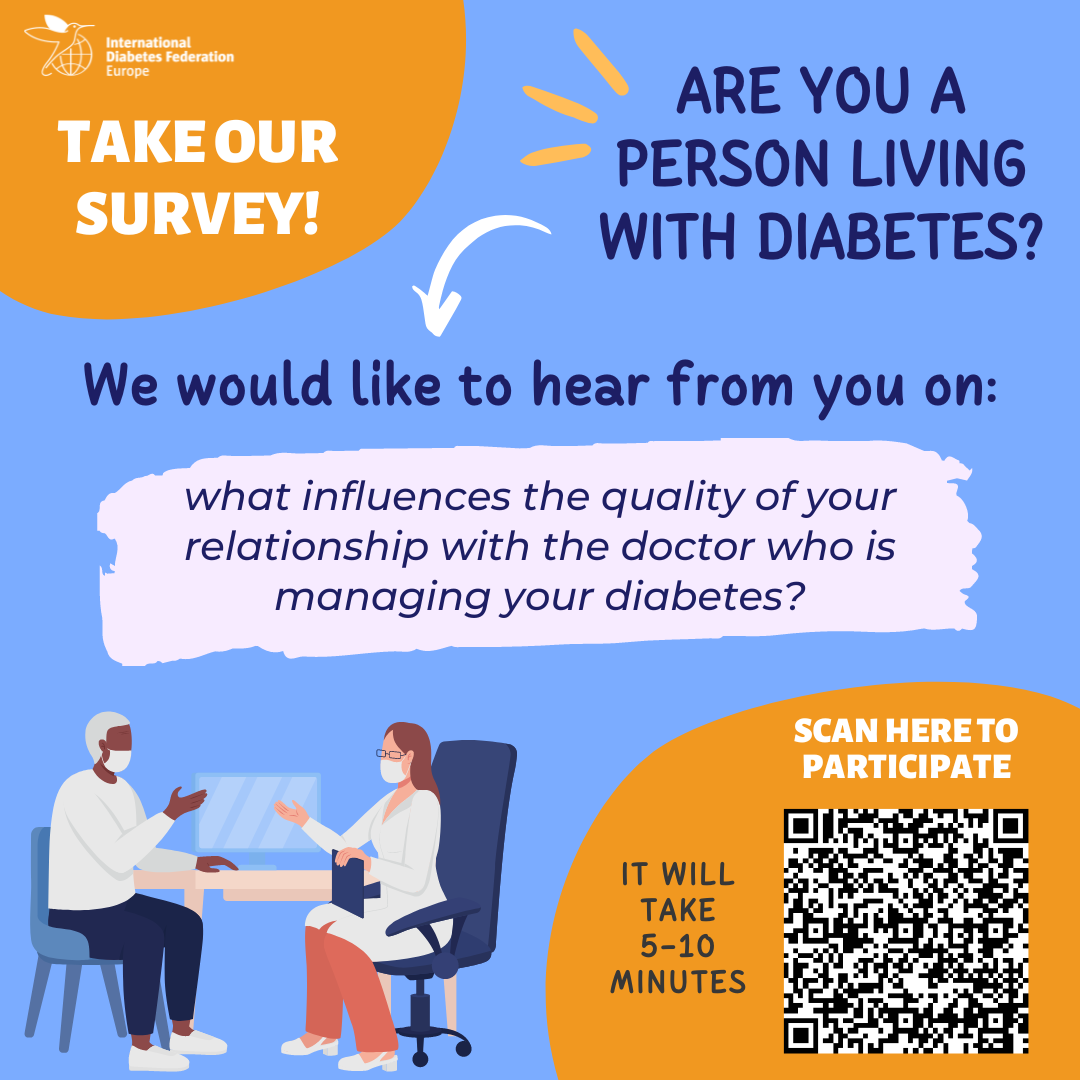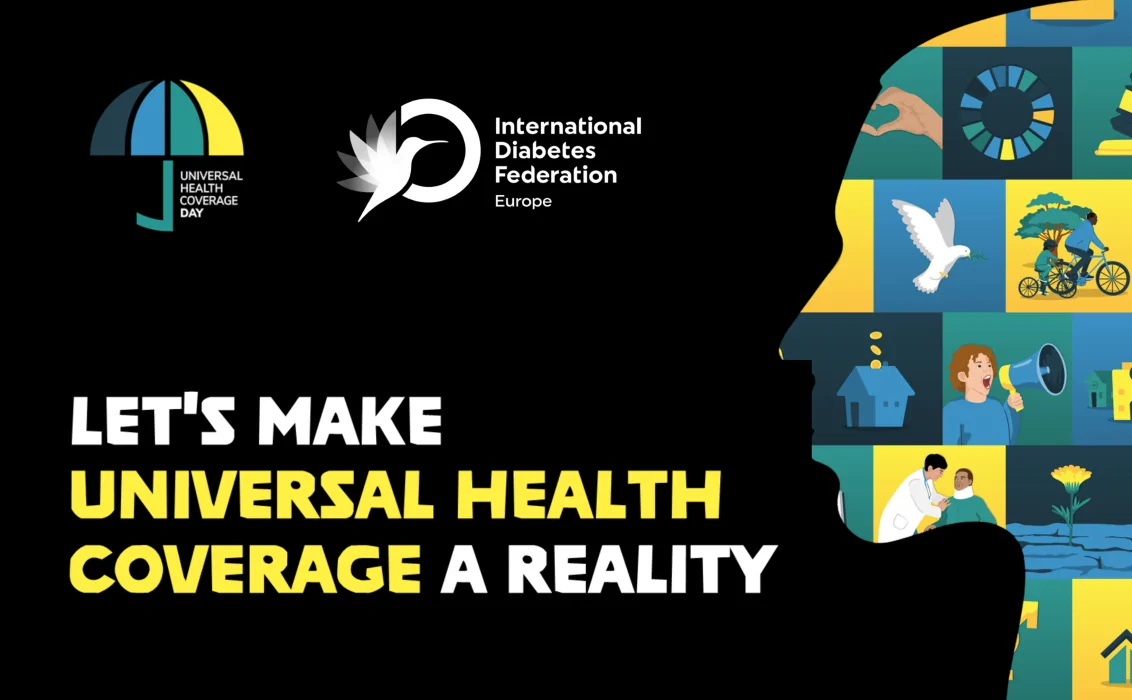IDF Europe has recently established a working group as part of a new platform of People living with Type 2 diabetes (T2D) and other types of diabetes in Europe, which is specifically looking at the key components of a successful relationship between people living with diabetes (PwD) and healthcare professionals (HCPs). To best understand the views of PwD, we have prepared a survey to collect information on what influences the quality of the PwD-HCP relationship. The results of the survey will ultimately contribute to the development of recommendations on how to improve the relationship and, subsequently, the quality of life and health outcomes of PwD.
To participate in the survey, click here or scan the QR code in the image below:
 |
Make your voice heard!
Share the survey with your friends and network on Facebook, Twitter and LinkedIn.
The initial results of the consultations with the T2D platform and the survey will be officially presented during the IDF Europe Symposium at EASD, on September 19, in which three panels will address different approaches/solutions that contribute to improving the quality of the PwD-HCPs interaction. The panel discussions will focus on three complementary approaches including the HCP as a member of a multi-disciplinary team; the implementation of guideline-directed therapies; and the engagement of HCPs and PwD in clinical trials to improve their interaction and health outcomes.
Why is it crucial to improve the relationship between PwD and their doctors/diabetes team?
Many people living with T2D have mentioned that the quality of the relationship with their main doctor, at the time of diagnosis and throughout their life, is critical to their diabetes management. Through the establishment of a quality relationship with PwD, HCPs can facilitate shared decision-making and gain a better understanding of PwD’s personal goals, needs and priorities and help them personalise their care programme. However, developing a quality, collaborative relationship is not always free of obstacles. These range from lack of time and resources to attitudinal issues reflecting, for example, the stigma that is often attached to Type 2 diabetes (T2D).
To facilitate PwD engagement, HCPs need to be able to share information in an easily understandable format and establish an environment in which PwD feel comfortable asking questions and sharing their viewpoints, preferences, needs and priorities. The shift towards a more collaborative relationship between HCPs and PwD also requires non-medical support and advice that PwD might need to achieve health outcomes that most matter to them to be considered as part of standard care.
Understanding the key components of the HCP-PwD relationship can help identify what needs to be put in place to ensure that this interaction is effective and promote a patient-centred and holistic approach to diabetes management.


